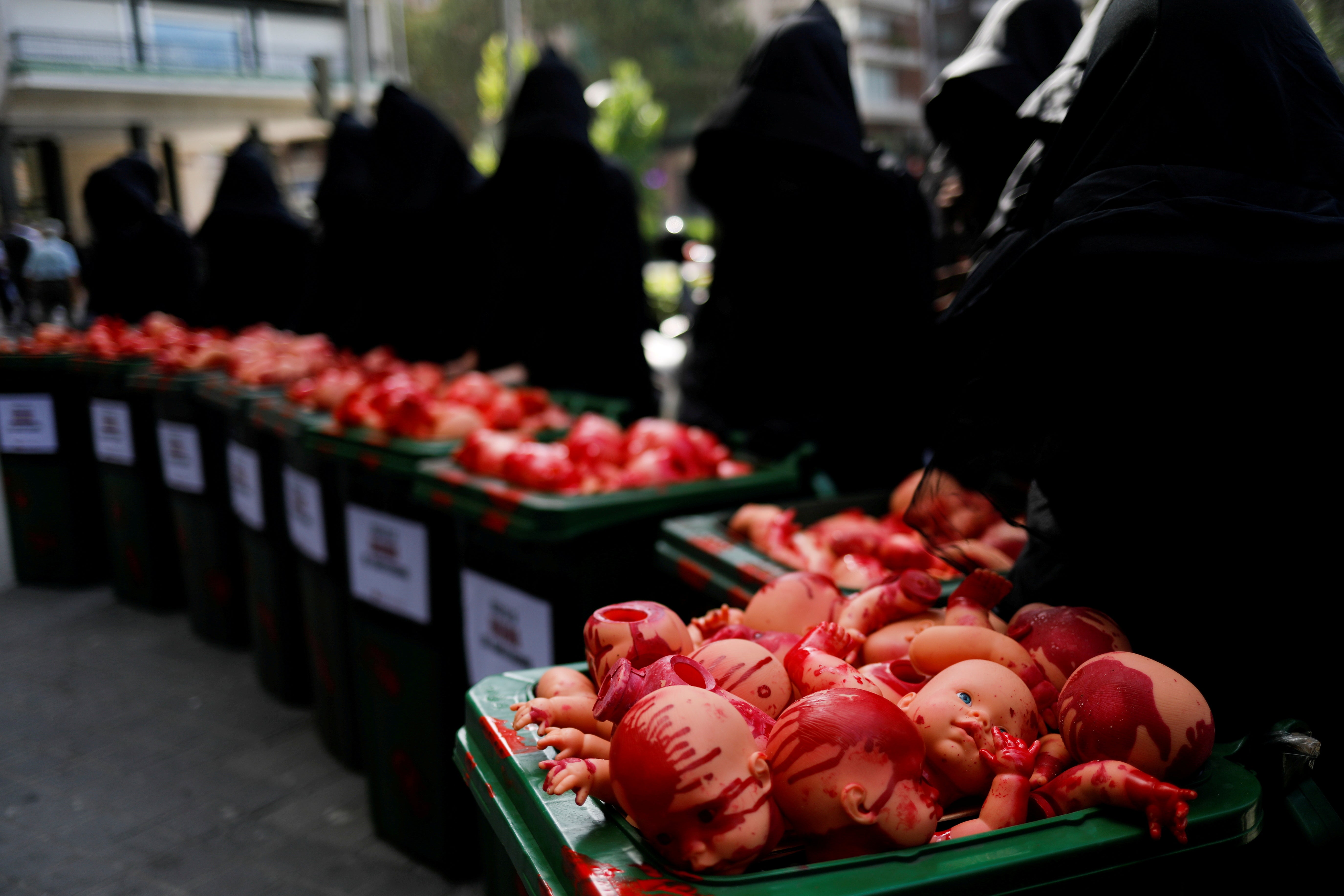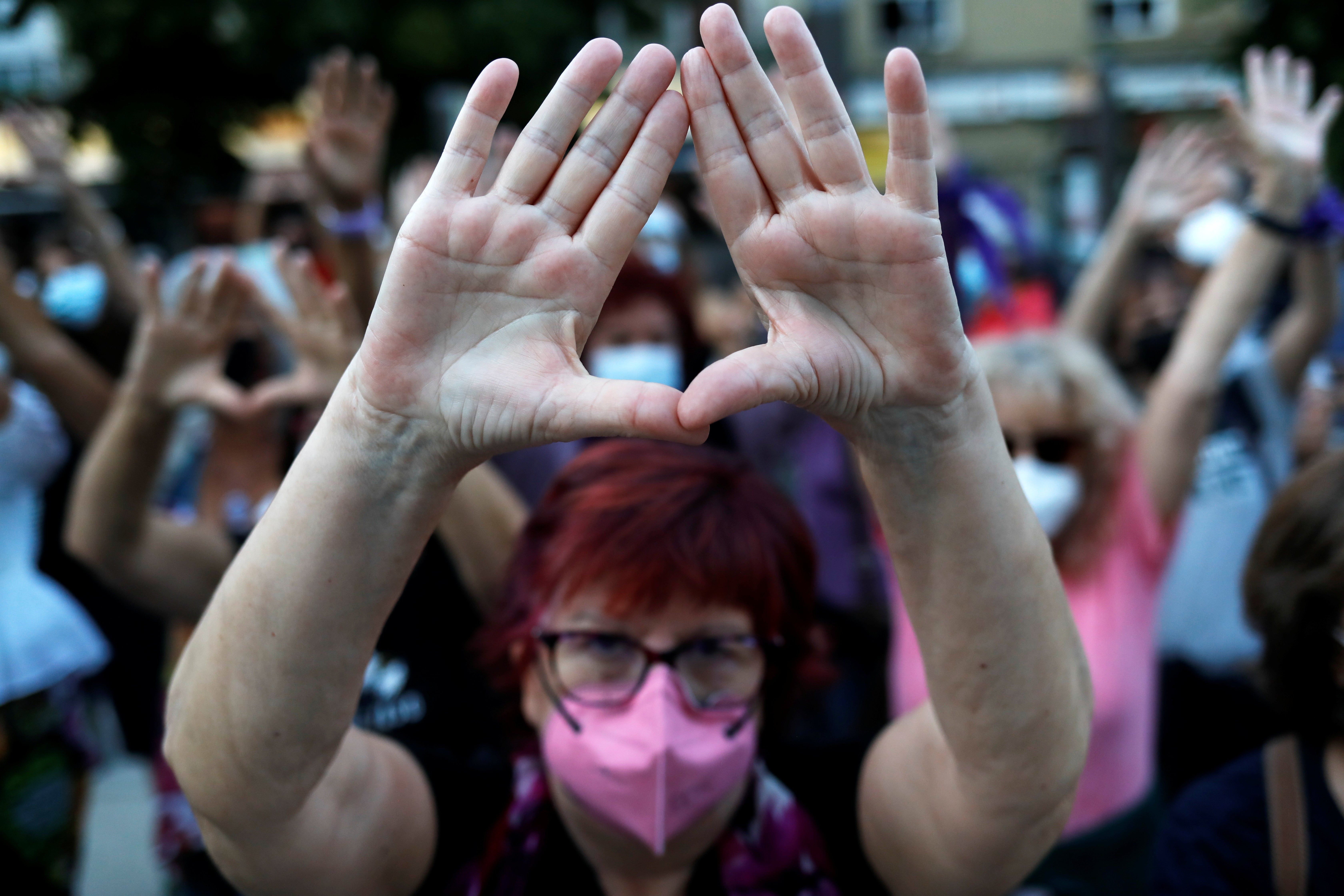Battle lines drawn in Spain’s impending fight over abortion law
The Madrid government is accused of ‘mixing political ideology with a moral issue’, reports Graham Keeley


An ideological war over abortion is brewing in Spain after the left-wing government was poised to liberalise existing legislation prompting a backlash from a rising pro-life movement.
The draft law, which is expected to reach the Spanish parliament before the end of the year, would criminalise harassment of women outside private abortion clinics, in which offenders would be jailed for up to a year or face community service.
The coalition government, which is composed of the Socialists and the far-left United We Can party, also wants to create a register of doctors who, for reasons of conscience, object to performing terminations.
A number of Spanish doctors have identified themselves as ‘conscientious objectors’, like pacifists who refuse to take up arms and go to war. Under rights protected by the Spanish constitution, they say carrying out abortions contravenes their principles to preserve life.
Other proposals for the new law include doing away with the current three-day period of reflection for women, which is obligatory under the existing law. Women aged 16 and 17 will no longer need their parents’ permission to have an abortion.
“The state has two obligations. One is to guarantee the right of health professionals to conscientious objection and the other is that all recognised health rights can be attended and guaranteed in public centres,” said Spain’s minister of equality, Irene Montero.
Right-wing critics have attacked the Spanish government’s proposals, saying criminalising demonstrations outside abortion clinics was an attack on the freedom of expression.
Amid signs of a growing movement against abortion rights, the conservative People’s Party (PP) proposes doing away with the current law, a move which is supported by the far-right Vox party, the third largest force in Spanish politics.
Spain liberalised its abortion law in 2010 to bring the country in line with other European nations.
In the years before, women were only allowed to terminate pregnancies in extraordinary circumstances, but the current law allows all women to undergo the procedure on demand in the first 14 weeks of pregnancy without restrictions.
The PP has appealed to Spain’s constitutional court to overturn the current abortion legislation and bring back a law introduced in 1985, under which terminations were only allowed because of serious risk to the physical or mental health of the pregnant woman, rape and malformations or defects to the foetus.
The court is expected to deliver its verdict within months.
An earlier conservative government promised to do away with the 2010 law, but failed to deliver because of objections among party members.
“We have learnt from our mistakes in the past. The 1985 law will return,” Jose Luis Martinez-Almeida, the mayor of Madrid and spokesman for the PP, said.
It is not known how many doctors refuse to carry out abortions in Spain.
Eva Maria Martin, a pharmacist who is president of the National Association for the Defence of Conscientious Objectors, a group which defends objecting doctors, said the government was “mixing political ideology with a moral issue”.
“Abortion is not an issue for the right-wing or the left-wing. It is a human issue,” she told The Independent.
“The government is manipulating this issue for ideological reasons, but it is an issue of freedom of expression, the right to practice a termination or not as your conscience tells you.”

Only 6.2 per cent of approximately 100,000 abortions every year in Spain are carried out at public hospitals, even though it is every woman’s right to have a termination on the state health system.
In many public hospitals, conscientious objectors refuse to carry out terminations.
Dr Marta Vigara, a doctor at the public Clinico San Carlos Hospital in Madrid, was forced to go to a private clinic for an abortion, even though she had lost amniotic fluid and there was a serious risk to her and the foetus.
Two gynaecologists at her hospital signed a letter saying there was an extreme risk to her and her unborn child, but they still refused to carry out the termination.
“We have been enduring the same for years, year and years and we start to complain it is very uncomfortable,” Dr Vigara said.
“The majority of managers, of those who decide, are men. And this cannot continue to be the case.”
Even those women who are forced to go to private clinics face regular abuse.
Some 89 per cent of women who went to get an abortion said they felt harassed, while 66 per cent said they were threatened, according to a 2020 survey for the Association of Accredited Abortion Clinics.






Join our commenting forum
Join thought-provoking conversations, follow other Independent readers and see their replies
Comments